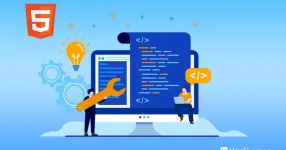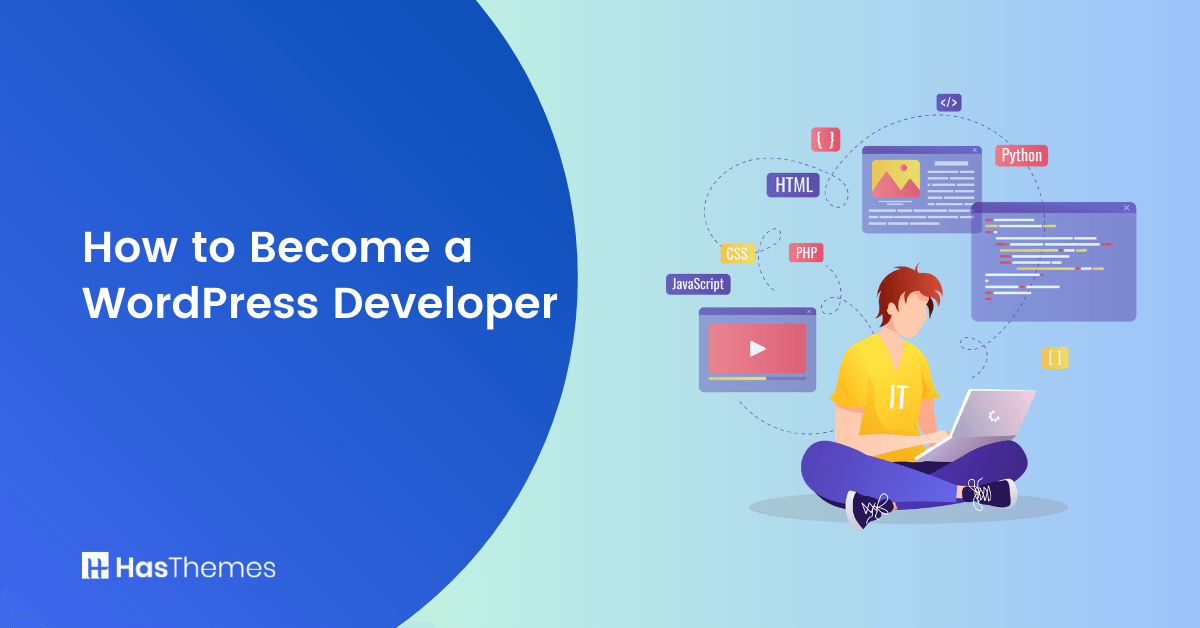
How to Become a WordPress Developer: Essential Steps and Tips for Success in 2024
Are you dreaming of becoming a WordPress developer in 2024? With the right approach, you can turn this dream into reality! Learning how to become a WordPress Developer requires dedication and perseverance. In this blog post, we’ll walk you through all the essential steps and tips that will help you succeed on your journey to becoming an expert WordPress Developer in 2024.
- Understand the Role of a WordPress Developer
- Definition and responsibilities of a WordPress developer.
- Types of projects and tasks a WordPress developer handles
- Acquire the Necessary Skills
- Proficiency in HTML, CSS, and JavaScript
- Understanding of PHP and MySQL
- Familiarity with WordPress themes, plugins, and APIs
- Knowledge of responsive design and mobile optimization.
- Choose Your Focus Area
- Stay Updated and Relevant
- Following WordPress blogs, forums, and communities
- Attending WordCamps and online webinars
- Engaging with open-source projects and contributing to WordPress.
- Build a Portfolio
- Tips for Success
- Emphasizing communication and problem-solving skills
- Collaborating with designers, content creators, and clients
- Striving for continuous learning and improvement
- Frequently Asked Questions
- How to Become a WordPress Developer: Final Thoughts
Understand the Role of a WordPress Developer
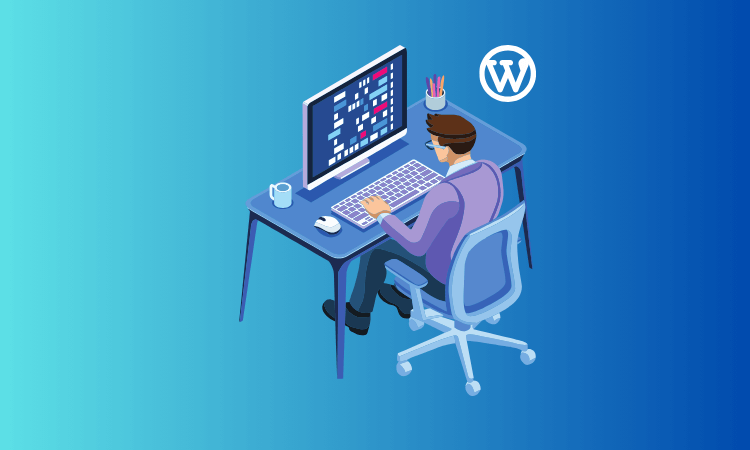
The first step to becoming a WordPress Developer is to understand the role of a WordPress Developer. A WordPress Developer uses PHP, HTML, JavaScript, and CSS to create websites or web applications with the WordPress platform. They must be knowledgeable about coding, have excellent problem-solving skills, and be able to work independently as well as collaborate with other developers in a team.
The WordPress Developer must have a good understanding of the WordPress infrastructure and be able to troubleshoot any issues that arise.
Definition and responsibilities of a WordPress developer.
A WordPress developer is a skilled professional who transforms design concepts and client needs into functional and visually appealing websites. They handle a variety of tasks, from website creation and customization to optimization and ongoing maintenance, ensuring that websites operate seamlessly and deliver an excellent user experience.
A WordPress developer is a skilled professional who specializes in working with the WordPress content management system (CMS). Their primary responsibilities include:
- Developing custom plugins, themes, or modules tailored to specific project requirements.
- Creating sitemaps or wireframes to plan and structure websites effectively.
- Converting existing websites into WordPress sites, ensuring seamless functionality.
- Overhauling and redesigning websites to improve performance and enhance SEO rankings.
- Analyzing and optimizing WordPress codebase to ensure optimal website performance.
- Engaging in both front-end and back-end development tasks, covering a wide range of technical aspects.
- Efficiently managing multiple projects concurrently, prioritizing tasks, and meeting deadlines.
- Establishing clear and effective communication channels with clients to understand their needs and provide updates on project progress.
- Consulting with prospective clients, offering insights, and proposing solutions to meet their website development requirements.
- Conducting ongoing support and maintenance activities, including regular backups and security scans, to uphold website integrity and security.

Types of projects and tasks a WordPress developer handles

WordPress developers handle a wide range of projects and tasks that revolve around creating, customizing, and maintaining websites using the WordPress platform. Some of the key types of projects and tasks they handle include:
Website Creation and Customization:
WordPress developers design and build websites based on client requirements. They create custom themes or modify existing ones to achieve the desired look and functionality.
Plugin Development:
They develop custom WordPress plugins to add specific features or functionality to a website. This could involve creating plugins for e-commerce, SEO, social media integration, and more.
Theme Development:
WordPress developers design and develop themes that control the layout, design, and overall look of a website. They ensure that the themes are responsive and provide a seamless user experience.
Website Maintenance:
They are responsible for maintaining and updating websites regularly. This includes keeping WordPress core, themes, and plugins up to date to ensure security and compatibility.
Performance Optimization:
WordPress developers optimize website performance by implementing techniques like caching, image optimization, and minimizing code to improve site speed and user experience.
Troubleshooting and Debugging:
When issues or errors arise on a website, WordPress developers diagnose the problem and implement solutions. They may work with PHP, JavaScript, and CSS to fix bugs.
Security:
They take measures to secure WordPress websites by implementing security best practices, using secure coding techniques, and adding security plugins to protect against threats.
Content Management:
WordPress developers ensure that clients can easily manage and update their website content. They may create custom content management systems within WordPress or provide training to clients.
SEO Integration:
They optimize websites for search engines by implementing SEO best practices, such as optimizing meta tags, headings, and improving site structure for better rankings.
User Experience (UX):
WordPress developers focus on enhancing the user experience by making websites intuitive and user-friendly. This includes optimizing site navigation and ensuring responsive design.
Collaboration:
They often work in collaboration with designers, content creators, and other developers to bring a website project to fruition.
A WordPress developer’s role encompasses website creation, customization, maintenance, security, performance optimization, and ensuring a positive user experience. They play a crucial role in building and maintaining WordPress-powered websites to meet clients’ needs and industry standards.
HT Easy GA4
#1 📈 Google Analytics Plugin for WordPress
🚀 Supercharge your WordPress website with analytical insights. (Including WooCommerce Report)
Acquire the Necessary Skills
A successful WordPress developer must possess a number of skills to be effective. These include knowledge of content management systems, custom post types, web development techniques, and more. It is also important to learn as much as you can about WordPress, especially its themes and plugins. After all, a great WordPress developer should understand how to create amazing websites.
There are various ways to acquire the necessary skills. These include :
Proficiency in HTML, CSS, and JavaScript
HTML, CSS, and JavaScript are essential for front-end web development. It is important to understand how HTML tags work and the basics of styling websites through CSS. Additionally, knowledge of JavaScript will allow developers to create interactive elements on WordPress sites.
Understanding of PHP and MySQL
Since WordPress is built using PHP and MySQL, it is important to have a solid understanding of both technologies. This includes being able to write code in PHP and creating queries in MySQL that can be used on WordPress sites. Being proficient in both languages will allow developers to create custom plugins and themes that are optimized for performance.
Familiarity with WordPress themes, plugins, and APIs
To build effective WordPress websites, developers must understand the different themes, plugins, and APIs available. This includes understanding how to install plugins and themes, as well as how to integrate third-party APIs into a website. Additionally, developers should be able to create custom themes and plugins for use on their sites.
Knowledge of responsive design and mobile optimization.
With the rise of mobile devices, it is important for a WordPress developer to understand how to create websites that are responsive and optimized for mobile. This includes understanding how to adjust layouts for different-sized screens and implementing techniques that will help minimize page load times on smaller devices.
Additionally, developers should be familiar with the various tools available for testing and optimizing sites for mobile users.
Choose Your Focus Area
When it comes to WordPress development, there’s no one-size-fits-all approach. That means you need to decide what focus area is best for you — be it content management, custom post types, web development, or something else entirely. Start by researching the skills required to excel in each specialty and use that knowledge to create a plan of action for yourself.
WordPress Theme Development
One of the most popular areas for WordPress developers is theme creation. If you’re interested in giving it a try, there are several ways to get started. You can join an open-source project and learn by doing, dive into online tutorials, or take classes from experienced developers who have been creating beautiful themes for years.
WordPress Plugin Development
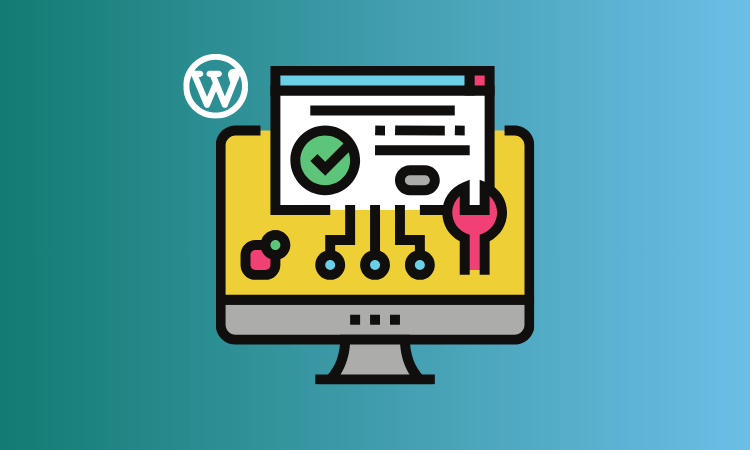
Another way to get involved in the WordPress development community is by creating custom plugins for the platform. This can range from complex eCommerce solutions to simple content management systems and requires a strong understanding of PHP programming language as well as key WordPress functions and APIs.
Start by researching WordPress plugin development basics online, then move on to developing your own projects. You may also want to join a development group and work with like-minded individuals to get experience and hone your skills.
WordPress API Development
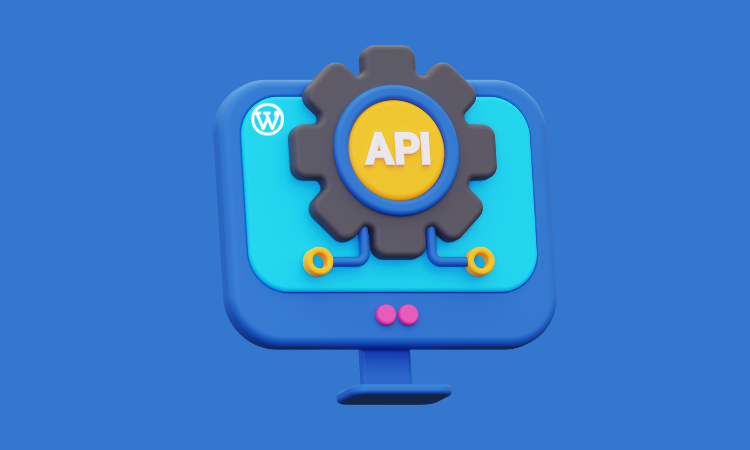
Finally, don’t forget to explore the WordPress API. This powerful development tool allows you to create custom applications and websites that integrate with the WordPress platform. Start by learning how to use the various APIs available (such as REST, XML-RPC) then tackle larger projects such as creating a custom content management system or developing a plugin for your own site.
With the right skills and dedication, you can go from just knowing how to use WordPress to becoming a true WordPress developer.
Stay Updated and Relevant
WordPress developers need to stay on top of the latest trends in content management and web development. One way to do so is by familiarizing yourself with WooCommerce products. This popular e-commerce platform offers a variety of plugins, themes, and other tools that can help improve your WordPress skills.
You can use these products to customize post types, add widgets, create custom web pages, and more. Being knowledgeable of WooCommerce products can also help you provide better solutions for clients in the future.
Following WordPress blogs, forums, and communities
Stay updated with the latest WordPress trends by following blogs, forums, and online communities. Gain valuable insights into new features and changes, improve your skills, and discover solutions to common problems. Connect with other developers and build relationships for advice, job opportunities, and collaborations.
So, if you’re serious about learning how to become a WordPress developer, make sure to follow blogs, forums, and online communities, and stay ahead of the game.
Attending WordCamps and online webinars
Another great way to stay informed and network with other WordPress developers is to attend WordCamps or online webinars. WordCamps are conferences that bring together WordPress experts from around the world, giving you the opportunity to learn from these experienced individuals as well as build contacts within the industry.
Online webinars allow you to access tutorials and lectures on a variety of WordPress-related topics from the comfort of your own home. These events are highly informative and can help further your knowledge and broaden your understanding of WordPress development.
Engaging with open-source projects and contributing to WordPress.
Getting involved in open-source projects is crucial for aspiring WordPress developers. By collaborating on existing software, you can gain valuable experience in coding, debugging, and problem-solving. It not only helps build your portfolio and recognition within the community but also enhances your professional network. Open-source projects provide a unique opportunity to sharpen your skills while contributing to the WordPress community.
Build a Portfolio
Creating a compelling portfolio is vital for WordPress developers to demonstrate their skills, showcase projects, and attract potential clients. It serves as a showcase of your abilities and the projects you have undertaken.
Here’s how you can go about building an impressive portfolio:
Select Your Best Work:
Choose a selection of your best and most diverse projects. These should highlight your skills and range as a developer. Include a mix of website types, designs, and functionalities.
Create a Website:
Build a dedicated website for your portfolio. It’s a practical way to demonstrate your WordPress skills. You can use your own domain or utilize platforms like WordPress.com or portfolio-specific platforms like Behance or Dribble.
Case Studies:
For each project in your portfolio, write a detailed case study. Explain the client’s requirements, the challenges you faced, and how you solved them. Include before-and-after images if applicable.
Show the Process:
Showcase your development process. This can include wireframes, mockups, development stages, and the final product. Potential clients often like to see how you work.
Highlight Key Skills:
Emphasize the specific skills and technologies you used for each project. Whether it’s custom theme development, e-commerce solutions, or performance optimization, make it clear.
Include Testimonials:
If you have positive feedback from clients, feature it prominently. Testimonials can build trust with potential clients.
Contact Information:
Make it easy for potential clients to get in touch with you. Include a contact form or clear contact details.
Tips for Success
As you become more comfortable with the WordPress platform and web development in general, it’s time to start thinking about how to take your skills to the next level. Here are some essential tips for successful WooCommerce product development in WordPress:
Emphasizing communication and problem-solving skills
Effective communication and problem-solving skills are crucial for the successful development of WooCommerce products. Staying connected with the WordPress community is invaluable, providing opportunities to seek help, troubleshoot, and find inspiration for projects.
Collaborating with designers, content creators, and clients
Collaborating with designers, content creators, and clients ensures meeting product requirements. Stay updated on web development trends to create standout, high-quality products.
Striving for continuous learning and improvement
Continuous learning and improvement in WordPress development are crucial for success. Stay updated with new techniques, technologies, and industry news to develop better products and stay ahead of the competition. Keep a pulse on the changing e-commerce landscape.
Frequently Asked Questions
What is a WordPress developer, and what do they do?
A WordPress developer is a professional who specializes in creating, customizing, and maintaining websites using the WordPress platform. They handle tasks like theme and plugin development, site optimization, and ensuring a seamless user experience.
What skills are required to become a WordPress developer?
To become a WordPress developer, you need a strong foundation in web development, including knowledge of HTML, CSS, JavaScript, and PHP. Proficiency in WordPress-specific technologies like themes, plugins, and the WordPress API is essential.
How can I learn WordPress development?
You can start by exploring online resources, tutorials, and courses on WordPress development. Consider enrolling in courses on platforms like Udemy, Coursera, or LinkedIn Learning. Additionally, practice by building your own WordPress projects.
Do I need a degree to become a WordPress developer?
While a formal degree in web development or computer science can be helpful, it’s not always necessary. Many successful career WordPress developers are self-taught or have completed coding bootcamps. Practical experience and a strong portfolio often matter more.
What are the career prospects for WordPress developers?
WordPress developers are in high demand as more businesses and individuals seek an online presence. You can work as a freelance developer, join a web development agency, or even start your own web development business.
What are some advanced skills I can learn as a WordPress developer?
Advanced WordPress developers can explore topics like custom theme and plugin development, performance optimization, e-commerce solutions with WooCommerce, and integrating third-party APIs.
How can I stay updated with the latest trends in WordPress development?
To stay current, follow reputable WordPress news sources, participate in online WordPress communities and forums, attend WordPress-related conferences and meetups, and regularly update your skills through courses and tutorials.
Are there any specific coding standards for WordPress development?
Yes, WordPress has its coding standards and guidelines, often referred to as the WordPress Coding Standards. Following these standards ensures that your code is secure, maintainable, and compatible with WordPress.
How to Become a WordPress Developer: Final Thoughts
As we have discussed, there are many steps in the process of how to become a WordPress developer. From learning how to build simple WordPress sites with HTML and PHP to becoming a master coder developing custom themes and plugins, the journey may be lengthy but is well worth it.
With hard work, dedication, and practice, anyone can become a successful WordPress developer. No matter your current skill set, there is always something new to learn and discover in the ever-evolving world of coding.
If you commit to staying ahead of the game by continually honing your skills and expanding your knowledge base, then becoming a WordPress Developer could be a reality for you soon. So what are you waiting for? Take the first step on your path to Become a WordPress Developer today!


